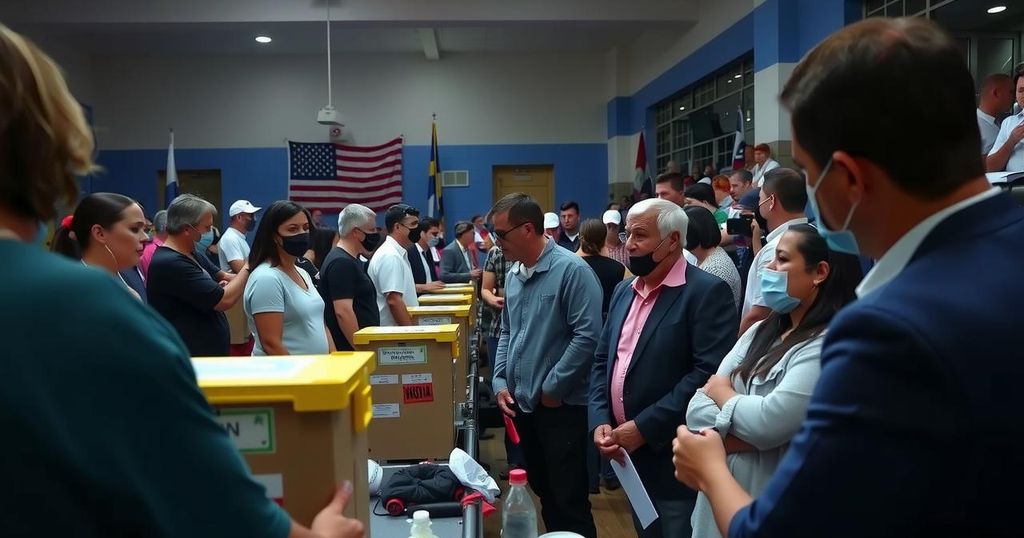Uruguay’s Presidential Run-Off Election: Left vs Right in a Crucial Choice

Uruguayans are participating in a presidential run-off election, where leftist candidate Yamandu Orsi faces off against Alvaro Delgado from the National Party. This marks a crucial moment for the left as they seek to return to power after five years of rightist governance. Voting began today at 8 AM and will continue until 7:30 PM, with results expected afterward. The election outcome may reflect broader global trends affecting incumbent parties amid economic challenges.
Voting has commenced in Uruguay’s presidential run-off election, with citizens deciding between the leftist Frente Amplio (Broad Front) candidate Yamandu Orsi and Alvaro Delgado from the National Party. The leftist alliance, led by former President Jose “Pepe” Mujica, is contending to regain power after five years under a right-leaning administration. Ballot stations are open from 8 AM to 7:30 PM, and initial results are anticipated by 9:30 PM.
Orsi had previously garnered 43.9 percent of the votes in the October elections, while Delgado received 26.8 percent, supported by the conservative Colorado Party. Notably, the political scene in Uruguay has been relatively stable compared to the polarized climates in neighboring Argentina, Brazil, and Mexico. President Lacalle Pou’s administration retains a 50 percent approval rating, despite challenges in addressing crime despite improvements in employment and wages.
Both candidates are vying for the approximately 8 percent of voters who supported smaller parties in the first round or who abstained from voting altogether. Orsi has emphasized a moderate approach and reassured citizens of no drastic policy changes, while Delgado has focused on continuity by appealing to the incumbent government’s success. Additionally, the absence of new pledges from both sides could hinder their efforts to attract undecided voters.
As this election year concludes globally, the focus remains on whether Uruguay will resist the widespread trend where incumbent parties typically lose support. Voters around the world have expressed dissatisfaction with rising inflation and living costs, prompting reflections on the stability of political affiliations in the face of such economic challenges.
Uruguay’s political landscape is characterized by a moderate approach, differing significantly from the heightened polarization seen in other Latin American countries. This run-off election is pivotal as it reflects the mood of the electorate after a period of governance by a right-wing coalition. Former President Jose Mujica’s leftist alliance seeks to regain control after a significant gap, but the dynamics of both the economy and public perception play crucial roles in the outcomes. With significant voter turnout and the engagement of smaller parties, this election serves as a critical juncture to evaluate the electorate’s sentiments amidst prevailing global economic pressures.
In conclusion, Uruguay’s presidential run-off election presents a compelling narrative of political choice between the left and right factions, with each candidate trying to consolidate voter bases amidst a backdrop of economic concerns. The outcome will not only determine the leadership style and policies but also signify whether Uruguay can uphold the political stability it is known for in the region. Observers await the results to see if the current government retains support or if the opposition can successfully reclaim power.
Original Source: www.aljazeera.com







